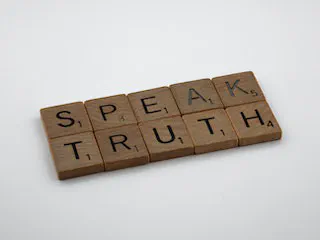
Going on a Technology Detox
- Matthieu P.J.
- Personal development
- January 29, 2021
It’s now common to hear about going through a detox to purify our body: drinking fruit juices or herbal tea, eating fresh and healthy food or maybe even fasting. I think we should also consider purifying our mind. What about a detox for all the unhealthy habits which we developed over the last 15 years or so due to the omnipresence of technology in our lives?
We had a computer at home when I grew up in the 90s and a plethora of video-game consoles over the years. But we didn’t have smartphones and the internet. Which means that there were boundaries and the use was limited to being at home—and mostly in the living room. But for someone born in the 21st century, the story is different.
I became acutely aware of the impact of technology on my life over the last few years. Some introspection and honesty forced me to realise that I was the last generation to have been born without an ever-present technology and without the modern internet. Yes, internet was created in the 80s but for quite some time it was impractical for the masses. It feels me with a certain nostalgia to hear the sound of a 56 kbit/s modem when it dials up . For those who are old enough, you will understand. It used to take long minutes to download web pages with images—let alone video that would take hours or even days. We had a certain sense of patience.
During the 2000s the speed of internet connection really boomed. Then since the 2010s the internet revolution accelerated even more. What a big gap between me and generation Z1. And what to say of the baby boomers? Granted, they had TVs back then but they used it in a very different way than even me. At some point I fully grasped how I was at a junction in human history: those borns from the early 2000s would have technology since childhood, especially a high-performance internet and smartphones. They would not know what a world ‘without it’ means. This very significant.
Many of us have started to realise what’s really going on, wondering if the way we use technology is reasonable—or even healthy. Several years ago I met someone who as a father of four realised technology was impacting the quality of life of his family, especially interactions with his children. His name was Mark and he had written a book called Digitox where he explains strategies he has put in place to address the Digital Overdose and limit technology intoxication e.g. establishing one day a week where there is no internet use permitted for all family members.
Mark and I both worked in the Software industry, so we were heavy consumers of technology; yet we knew that for our own well-being—as well as for the well-being of those around us—we should be mindful of our technology consumption.
Smartphones have become a portable gateway giving us access to the power of the mighty internet: social media, messages, news, video-games and online shopping—among many other things. But whether we realise it or not, we also carry constantly with us a device that is highly addictive.
Table of Contents
How we use technology has changed
Life today
We got so accustomed to the fast and ever-increasing progress of technology that we rarely stop to look back at our past and reflect. I am an intensive user of technology and here are some significant facts I noticed:
- My emails follow me everywhere on my smartphone and I can feel tempted to check them very often.
- I can exchange instant messages (on platforms like WhatsApp, Signal) with all my friends and family in real time, 24/7, wherever I can have a 4G or Wi-Fi connection—which nowadays in a city is virtually anywhere.
- Similarly, social media connect hundreds of million of people together and allow them to write, share photo, videos and documents and keep up-to-date on each other.
- I don’t even need to carry cash or cards anymore, my smartphone has contactless payment.
I’m stopping there but the list goes on and on. I can now do virtually anything that requires the internet just from my smartphone. At some point I am forced to realise: what would I do without my smartphone? Well, the answer is: less, much slower, with much more pain.
Do you even remember how life was before smartphones and the internet?
I do. I was calling people and sending postcards. I did manage my agenda in a paper diary. I was writing down on paper the things to remember. My screen time was limited to TV and computers, which were not portable devices and stayed at home. I had to go to the shop to buy something (and couldn’t not give in to compulsive buying 24/7). I was meeting people and we’d spend time socialising, instead of checking our smartphones in turn and missing the present moment.
I was not unhappy. With the years I just got accustomed to the digitalisation of many services which provided time savings. But that also meant I was not meeting people in the real world as often. In a world where technology is automating most tasks, we also have a de-humanised society. No more cashier at the till, but a machine. No more clerk at the bank but an ATM. No more ticket salesman but another machine. And the call centres who connect us with people who are merely a voice hundreds or thousands of miles away. There’s something quite impersonal about our technologic path. I find it disturbing.
And I wonder: does our technology progress make us necessarily happier?
EMF radiations and health consequences
It is truly the evolution of the internet and the telecommunications infrastructure that has empowered the mobile phones to become what they are today.
Beyond the aspect of happiness, we can wonder if our modern technology is even safe for our health. The human body is sensitive to electro-magnetic fields. As the telecommunication technologies evolved and we transitioned to 3G 4G and apparently 5G soon, the infrastructure of antenna expanded greatly on the ground. People who live near a 4G mast often report issues such as insomnia or headaches.
We are constantly bathing in a soup of electro-magnetic waves and the places on Earth which are exempt are becoming rare. As the speed of data increased on cellular networks, so did the frequency of the waves. Artificial i.e. man-made EMF go back to the end of the 19th century so it’s not really new. But back then the waves were typically radio-waves carrying low energy. With modern technology and a desire to share always more information, the frequency of EMF has increased to permit higher bandwidth, and so did the energy they carry and how harmful they can be for the human body and biological life in general.
Today we are approaching a dangerous threshold in the micro-wave range. Do you remember what happens when you put food in the microwave? What if it was your entire body that was now constantly slow cooking in a giant and invisible micro-wave oven? Do you really believe that the 4G network is safe for human health—let alone the 5G?
The use of modern technology raises concerns
Modern technology can be addictive
Let’s use the proper terminology here even if it can be shocking for some. I believe we have become collectively addicted to our modern technology. The best way to verify that statement is to see if we can stay without technology for let say just one day. Well, most people simply can’t—or would find extremely painful.
By now, neuroscience has well documented that the use of tools like social media and messaging applications—that generate lots of notifications, messages and a constant stream of new information—act together as a supernormal stimuli2.
What it means is that modern technology provides several exaggerated versions of stimuli that, due to our evolution, we simply cannot resist. We are social creatures that are programmed to cooperate and avoid staying isolated, because we know it’s a matter of survival. But having now access to the entirety of our contacts virtually wherever we go and 24/7 is something so recent for us that we haven’t learned to adjust. We feel an unconscious need to send and reply to messages—even though that can amount to several hours of texting activity a day.
So scientists have now realised the use of smartphones can be a source of addiction. But how long will it take for raising awareness in the general public about it? If we look at the track record in similar situations, that is rather worrying.
Parallel with video-games
Video games have been around for decades already. When I was a teenager in the early 2000s there were already very popular but you’d have to be at home in front of a TV which somehow limited the amount of time most kids would spend on it. Still, it was obvious that some people already developed addiction. They’d play several hours everyday, late at night, and would become obsessed by finishing such and such game. They’d carry the behaviour into adulthood. It even became a meme that many guys preferred gaming rather than having sex with their girlfriend.
You may wonder, what was the reaction of society about the addiction to video-games? Smoking or gambling are recognised as addictions and you have support groups etc. but most people assumed video-games are harmless. It’s only in 2019 that they have become an internationally recognised addiction by the WHO. That’s when"gaming disorder" was first listed as a behavioural addiction. Now I don’t want to be pessimistic, but did you know the first video-game consoles where released in the 70s? We’re talking about nearly 50 years between the onset of a technology and the official recognition that some people can overuse it. That’s very long… And getting back to the smartphones now, they also support video-gaming which means that you can now play wherever you are, whenever you want. Smartphones have definitely become the portable platform with an unprecedented potential for mass addiction. But that doesn’t mean you will see on the newspaper headlines ‘How to save our children from the addiction of the 21st century: smartphones.’
Constant distraction kills productivity
We are constantly checking our phones (and other mobile devices) for something new because we got used to being bombarded with messages and notifications. Constantly. All day long. And it becomes a real problem when we don’t know how to switch-off anymore.
You don’t end up doing any real work when you are constantly disturbed. And that is one of the reasons why so many people, especially the younger among us who don’t know any better, are having a hard time working with undivided attention on something. I’ve talked about it in this other article about task & time management .
Instant gratification at the tip of your fingers
Smartphones are also becoming the tool to fulfil our desire to experience pleasure or fulfilment right now—what’s called instant gratification. It’s very visible with online shopping for example.
With a smartphone and internet, I can browse tens of thousands of items on online stores and even complete a transaction with a swipe of my finger using Amazon one-click purchase—and usually get it delivered next day or the same evening! On one hand it’s truly fantastic because of the time savings it generates, on the other hand I sometimes find myself buying something that turns out not to be that necessary. I even realised that giving myself a time buffer between the initial impulse for buying and the moment I finally place the order would make me drop some purchases.
Feeling of emptiness
"I feel like I'm dead when I don't get any message for several hours"
—Anonymous
When I started to recognise myself in that quote, I realised there was really something serious going on… Without realising it, I was craving the ‘feeling alive’ sensation provided by a constant flow of messages. It felt so good: I was keeping busy, people seemed to care about me, my social needs where met and I was even feeling important with an audience.
It reminded me of my reluctance to use Facebook in the early days. Indeed, I could not see the point of Facebook for many years till I finally signed up in the late 2000s. It seemed to me that it was collective voyeurism: you’d see all the pictures of these people going on holidays and seemingly living the good life—whereas I knew for a fact that some of these people were depressed not to say suicidal. Something was awfully wrong. It really felt like an outpouring of private life and—as someone who’s always been rather private—I could not get it. Also back in the days Facebook did not have all these sophisticated permission systems which means you’d see everyone’s pictures.
Then I realised the psychological dimension of it: the need for some people to create the image of someone who’s living the good life, in order to glorify their ego. Fine, if they were feeling good at least. But then there was this other phenomenon I perceived: a rampant fear of missing out3 (a.k.a FOMO). If all these people were having so much fun, it seemed that I was missing on all the good things of life.
Putting it all together, I had already observed the root of the problem with social media years ago: we get used to a constant stimulation of new messages (the supernormal stimulus mentioned above) and our brains get addicted to the high it gives. And neuroscience has measured it: our reward system gets stimulated while we interact with other people. A chemical called dopamine is released in our brains when we have successful social interactions—similar to what happens after we do sport, eat or have sex4. The more recent craving on my WhatsApp messages was the same thing! My brain missed the dopamine boost when no message had been coming in for several hours in a row, to the point that I could feel empty and almost depressed.
Somehow I am glad that I only had to deal with that in my mid-twenties because as a teenager I don’t know if I could have handled it well. As the years went by, others apps rose to fame such as the Twitter Instagram etc. but I never really bought into it.
I also observed the FOMO syndrome in a different way and I’ll share an anecdote. I had a discussion a few years ago about technology use and habits when I explained that I switch off my mobile phone before going to bed and turn it on in the morning. The next thing I heard was ‘I’m so shocked. What if someone needs to call you in the middle of the night for an emergency?’. I laughed and said: ‘well, that will have to wait for the next morning when I turn on my phone!’ I value my sleep too much for being disrupted—may it be an unlikely emergency call or rather a stream of message notifications from the insomniac friends who text all night or those friends on other time zones. I grew up without mobile phones (had my first one around age twenty I believe) and I know for a fact that I can live without it for at least 8 hours a day.
Where do we want to go as a collective?
I don’t know about you, but I am well aware of my limits—they’ve already been reached at the current level of technological development. I have no appetite for invading and harassing apps in my life. I tend to leave WhatsApp group chats when I realise there’s a lot of buzzing and no real talk relevant for me is going on. I fact, I find it a chore to have to check dozens of messages at the end of the day; I like my serenity. But I totally accept that other people may disagree.
I think the debate is on: where do we draw the line? Is it soon with wearables when people sport some sensors in their cloth that measure vital functions? Or is it when our brains become connected with the machine and the power of the internet? It may sound like sci-fi today, but we are approaching that day.
I am certainly not an advocate of transhumanism and its idea of merging human being with AI and machines. It’s not for me! I am an organic being, not a cyborg. I can’t even stand to wear an Apple watch of the likes on my wrist. I like old-fashioned watches with hands on the clock face. Some may say I’ve become an old fart without even realising it? I’d love to hear in the comments what your views are on this controversial topic.
The detox plan
There are many ways to keep control over our use of technology and promote healthier habits and routines. But if it’s your first time, I recommend taking baby steps:
- First of all, develop an awareness of your current ‘screen time’: on most mobile devices you can find statistics about your daily weekly and monthly use. Chances are you have no clue how long you’re really spending on your phone every day—after all we pick up and drop off the phone so often that’s it’s hard to keep track.
- Try to give yourself a time budget per day. Check the new screen time statistics to see if you succeeded. It will also relax the eyes which are constantly looking at screens nowadays.
- Turn off your phone at some point in the evening and enjoy a technology free moment: do some meditation, read a printed book etc.
- Turn off your home Wi-Fi router at night and whenever not needed if you are sensitive to EMF.
- Leave your phone at home when you go on a one hour walk. See how it feels.
- Gradually build moments when you are offline during the day, especially if you need to focus on some complex work.
- Spend regularly time in nature to recover from the EMF radiations in urban areas.
- Deactivate the push notifications on all your devices—they only promote the addiction and sense of urgency when there’s none. Check emails and messages at regular interval when you want to, not whenever you’re prompted by a notification sound or visual.
- Group your tasks together: check all messaging apps and emails at once instead of fragmenting that during the day—which only scatters your attention and hurts your productivity .
- Attempt a weekend ‘retreat’ without your smartphone. Tell your friends or family that you’ll be off the grid that weekend if it reassures you. And see for yourself: did anything dramatic happen while you were unplugged?
Final thoughts
I love technology—especially IT and electronics—and have been using it since I was a teenager. Modern technology has brought many improvements and automation to the world and I am grateful for it.
But I’ll be upfront: I believe we’ve all become more or less addicted to our modern technology—and particularly through the use of smartphones which we carry with us everywhere. Because it’s a rather recent—yet global—phenomenon, the realisation has only hit the most introspective of us. But I find the situation rather alarming especially considering such technology is now commonly used from childhood by millions.
I am not saying that mobile phones, tablets and the likes are a bad thing, but I’d like to raise awareness that they can be easily misused and overused. Their constant use can trigger a powerful addiction mechanism. I believe we should recognise the potential public health issue and set out to address it before it escalates further.
Generation Z (or simply Gen Z or Zoomers) are people born between 1997 and 2012 i.e. after the generation known as Millennials (or Generation Y) [Source: Wikipedia ] ↩︎
Other examples of a supernormal stimulus include: junk food and pornography. Read more here . ↩︎
Fear of missing out (or FOMO) is a social anxiety stemming from the belief that others might be having fun while the person experiencing the anxiety is not present. Wikipedia . ↩︎
See ‘Dopamine, Smartphones & You: A battle for your time’ on Harvard website ↩︎


